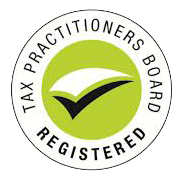Burnout is what comes because of long-term stress that affects both work performance and life balance.
It’s treatable and as a mental health condition, you have access to some very smart people who can help you.
My personal view is that burnout occurs after absorbing stress over a protracted period of time and finally your body becomes unable to process ongoing work and social pressures…. you burn out!
Emotional signs and symptoms of burnout
- Sense of failure and self-doubt.
- Feeling helpless, trapped, and defeated.
- Detachment, feeling alone in the world.
- Loss of motivation.
- Increasingly cynical and negative outlook.
- Decreased satisfaction and sense of accomplishment.
Covid has added a range of additional pressures to the work–life balance and the statistics tell us that ‘signs of burnout’ have increased nearly 25% from 2020 compared to previous years, read more about Burnout HERE.
Stages of Burnout
Burnout can affect anyone, at any time in their lives. However, research has shown that on average professions (white-collar) experiences burnout by the age of 32.
As with any mental health illness, symptoms of burnout will vary, however, it is generally agreed that there are five stages which it would reasonably expect a person suffering from burnout would experience:
1. HONEYMOON PHASE
In the first phase of burnout, you begin to experience predicted stresses caused by the work you are doing. During these periods it is critical to commence implementing coping strategies which support your ability to minimise operational stress.
The honeymoon phase acknowledges the need to create healthy stress coping mechanisms early in our working life so that we can continue operating without the risk of burnout.
2. ONSET OF STRESS
The onset of stress is the second stage of burnout, and it begins with feelings that some days are more difficult than usual. Optimism tends to wain during this stage, and periods of depression combined with stress symptoms may begin to affect you – both mentally, emotionally, and physically,.
Watch out for:
General neglect of personal needs, forgetfulness, inability to focus, lack of sleep or reduced sleep quality, lower productivity, unusual heart rhythms, anxiety, increasing job dissatisfaction, grinding your teeth at night, avoidance of decision making, headaches, high blood pressure, irritability, lack of social interaction, change in appetite or diet, fatigue, and heart palpitations
3. CHRONIC STRESS
Stress begins to become chronic during the third stage of burnout.
You will see a pronounced change to your stress levels and a reduction in your motivation, which is characterised by experiencing stress on an all to frequent basis. Symptoms during stage 3 are much more intense than those experienced in stage 2.
Watch out for:
Missed work deadlines and/or targets, persistent tiredness in the mornings, physical illness, procrastination at work and at home, repeated lateness for work, resentfulness, social withdrawal from friends and/or family, uptake of escapist activities, anger or aggressive behavior, apathy, chronic exhaustion, cynical attitude, decreased sexual desire, denial of problems at work or at home, feeling threatened or panicked, feeling pressured or out of control, increased alcohol/drug consumption, and increased caffeine consumption
4. BURNOUT
Stage four is you experiencing burnout itself, where the symptoms mean that it is not possible to continue as ‘normal’ and it is now increasingly difficult to cope.
Watch out for:
Feeling empty inside, obsession over problems at work or in life, pessimistic outlook on work and life, physical symptoms intensify and/or increase, self-doubt, social isolation, behavioral changes. chronic headaches, chronic stomach or bowel problems, complete neglect of personal needs, continuation or increase in escapist activities, desire to “drop out” of society, and a desire to move away from work or friends/family
5. HABITUAL BURNOUT
Habitual burnout is the final stage in the journey, and it means that the symptoms of burnout are so fixed into the day-to-day operations that you are likely to experience significant and ongoing mental health and emotional problems.
Watch out for:
Chronic sadness, depression, burnout syndrome, chronic mental fatigue, and chronic physical fatigue.
Act before burnout takes hold of your life and health.
If you wish to discuss the process of making an application for compassionate release of super under chronic mental health for drug or alcohol treatment contact:
Kathie Baker
Release My Super
0475 471 872 | 1300 941 037
Release My Super specialises in the release of superannuation for mental health treatment and drug and alcohol rehab services in criminal trials.
RELEASE MY SUPER | 1300 941 037




